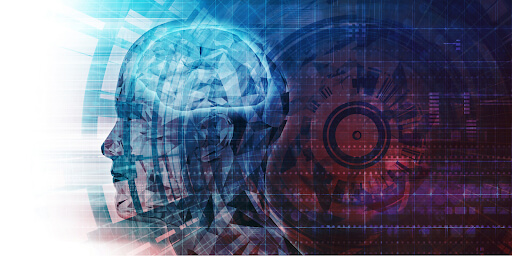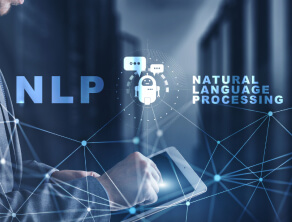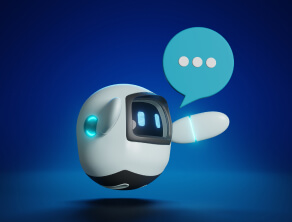Machine Learning in Healthcare: All You Need to Know.

The healthcare industry is undergoing a transformative shift fueled by advancements in technology. Among these technologies, machine learning (ML) has emerged as a powerful tool with the potential to revolutionize healthcare. By leveraging ML algorithms and AI-powered systems, healthcare providers can analyze vast amounts of data, identify patterns, and make data-driven decisions with unprecedented accuracy. From personalized treatment plans to early disease detection, machine learning is reshaping the industry and offering new possibilities for improved patient outcomes.
In this comprehensive guide, we will explore the top applications of machine learning in healthcare, delve into the challenges of implementing this technology, and discuss the future of ML in the healthcare sector. So, let’s dive in and discover how machine learning unlocks medicine’s future.
Personalizing Treatment for Better Patient Care
One of the critical applications of machine learning in healthcare is the ability to personalize treatment plans for individual patients. By analyzing a patient’s medical history, symptoms, and test results, ML algorithms can assist healthcare providers in developing customized treatments and prescribing medicines that target specific diseases. This personalized approach improves patient care and maximizes the chances of successful treatment outcomes.
Machine learning also enables healthcare organizations to leverage electronic health records (EHR) to gain valuable insights into patient data. By utilizing ML algorithms, doctors can make faster and more accurate decisions regarding treatment options based on a patient’s specific medical history.
Additionally, machine learning can assist doctors in determining if a patient is ready for necessary changes in medication, ensuring that the proper treatment is administered from the beginning. This personalized medicine approach empowers healthcare providers to deliver tailored care and improve patient outcomes.
Detecting Fraud and Ensuring Data Security
Fraud detection is another crucial application of machine learning in healthcare. The healthcare industry is plagued by fraudulent claims, which result in financial losses and compromise patient safety. Machine learning models can analyze vast amounts of data to detect invalid claims before they are paid, speeding up the approval, processing, and payment of valid claims.
Leading healthcare organizations like Harvard Pilgrim Health are embracing AI and ML technologies to root out healthcare fraud. ML-based fraud detection systems can identify suspicious claims and detect patterns of fraudulent behavior, safeguarding the integrity of the healthcare system.
In addition to fraud detection, machine learning also plays a vital role in ensuring data security in healthcare. Additional security measures are necessary with the growing amount of sensitive and confidential information collected. ML can help identify and prevent the theft of patient data, ensuring the privacy and confidentiality of healthcare records.

Early Disease Detection for Timely Intervention
Early detection of diseases is crucial for effective treatment and improved patient outcomes. Machine learning algorithms, combined with supervised and unsupervised learning techniques, aid doctors in detecting diseases that may otherwise go unnoticed. ML algorithms can identify early warning signs and enable timely intervention by comparing new data with existing data on specific diseases.
For example, ML algorithms can analyze medical imaging data, such as MRI or radiology scans, to detect abnormalities and assist doctors in diagnosing conditions such as liver and kidney infections, tumors, and cancer. This early detection allows healthcare providers to initiate treatment plans at the earliest stages of the disease, increasing the chances of successful outcomes.
Machine learning also holds promise in predicting disease outbreaks and epidemics. By analyzing vast amounts of data collected from satellites, social media updates, and other sources, ML algorithms can identify patterns and provide real-time alerts for diseases ranging from malaria to chronic infectious diseases. This early warning system is precious in resource-constrained areas with limited medical infrastructure.
Revolutionizing Surgical Procedures with Robotics
Machine learning is revolutionizing surgical procedures through the use of robotics. ML-powered surgical robots offer enhanced precision and speed, reducing the risks associated with complex surgeries. These systems can perform intricate surgical procedures with minimal blood loss, fewer side effects, and reduced patient pain. Also, post-surgery recovery is faster and easier, improving patient outcomes.
For example, Maastricht University Medical Center utilizes an ML-powered surgical robot to suture small blood vessels, some as thin as 0.03 millimeters. This level of precision and control is only achievable through machine learning and robotics integration in healthcare.
ML-powered technologies also provide real-time information and insights into a patient’s health condition, enabling healthcare providers to make intelligent decisions before, during, and after procedures. This technology holds promise for minimizing risks and improving surgical outcomes.
Enhancing Prescription Accuracy and Preventing Errors
Prescription errors can have severe consequences for patients, leading to adverse drug reactions and even death. Machine learning solves this problem by analyzing historic electronic health record (EHR) data and comparing new prescriptions against it. ML algorithms can flag prescriptions that deviate from typical patterns, prompting doctors to review and adjust them, thus preventing medication errors.
Brigham and Women’s Hospital implemented an ML-powered system to pinpoint prescription errors. Over a year, the system identified thousands of potential errors, enabling the hospital to save millions of dollars in healthcare-related costs and improve the quality of care by preventing drug overdosing and health risks.
By leveraging machine learning, healthcare providers can significantly reduce prescription errors, enhance patient safety, and improve the overall quality of care.
Streamlining Clinical Research and Trials
Clinical research and trials are essential for developing new drugs and medical procedures. However, these processes are often time-consuming and costly. Machine learning algorithms have the potential to streamline clinical research and trials, making them more efficient and cost-effective.
ML algorithms can assist researchers in determining the best sample size for a trial, gathering and analyzing data points, and reducing data-based errors. By leveraging the power of ML, researchers can accelerate the discovery and development of new treatments, ultimately benefiting patients and advancing medical science.
In urgent healthcare needs, such as developing vaccines for COVID-19, machine learning can expedite the process by quickly analyzing vast amounts of data and identifying potential solutions. This accelerated approach to research and development has the potential to save lives and improve public health outcomes.
Unleashing the Power of Drug Discovery
One of the most significant benefits of machine learning in healthcare is its ability to accelerate drug discovery and development. ML algorithms can analyze vast databases of molecular structures and identify potential drug candidates with significant economic value for pharmaceutical companies. This process saves time and resources and opens up new avenues for innovative treatments.
Atomwise, a pharmaceutical company, utilizes supercomputers and deep learning technology to search for therapeutic solutions within molecular databases. In one instance, Atomwise successfully repurposed existing drugs on the market to treat the Ebola virus, a process that would have taken years using traditional methods.
Machine learning in drug discovery offers the potential for faster and more cost-effective development of new treatments, addressing unmet medical needs and improving patient care.
Revolutionizing Medical Imaging Diagnosis
Medical imaging plays a crucial role in diagnosing and monitoring diseases. Machine learning is revolutionizing medical imaging diagnosis by enabling the analysis of large volumes of imaging data with incredible accuracy and speed. ML algorithms can recognize abnormalities in various medical images, such as MRI or radiology scans, and assist doctors in making accurate diagnoses.
For instance, the UVA University Hospital utilizes ML algorithms to analyze biopsy images and differentiate between celiac disease and environmental enteropathy as reliably as doctors do. This technology enhances the speed and accuracy of diagnosis, leading to better patient outcomes.
As machine learning continues to evolve, healthcare providers can expect further advancements in medical imaging diagnosis, allowing for more precise and efficient diagnoses of a wide range of conditions.

Overcoming Challenges and Shaping the Future of ML in Healthcare
While machine learning holds immense promise for the healthcare industry, implementing this technology comes with challenges. Patient safety is a primary concern, as decisions made by ML algorithms rely heavily on the quality and reliability of the input data. Flawed decisions can have severe consequences for patients, emphasizing the need for rigorous data validation and quality assurance processes.
Another challenge lies in the availability and standardization of healthcare data. ML algorithms require high-quality, standardized data to deliver accurate results. However, healthcare data is often incomplete, inconsistent, or unstructured, requiring significant effort to clean, validate, and structure for ML purposes.
Privacy concerns also pose a challenge, particularly with collecting and storing sensitive patient data. Healthcare organizations must implement robust security measures to protect patient privacy and ensure compliance with data protection regulations.
Despite these challenges, the future of machine learning in the healthcare industry looks promising. The global AI and ML in the healthcare market is projected to experience significant growth in the coming years, driven by factors such as the increasing demand for personalized medicine, the growing datasets of patient health-related information, and the need to reduce healthcare costs.
Machine learning technologies may enable programmed robots to assist doctors in surgical procedures, provide faster and more accurate alerts for conditions like seizures or sepsis, and improve risk scoring and clinical decision support systems. As technology evolves, healthcare professionals and clinicians must embrace machine learning to unlock its full potential.
Conclusion
Machine learning is revolutionizing the healthcare industry, offering new possibilities for personalized treatment, fraud detection, early disease detection, robotic surgery, prescription accuracy, clinical research, drug discovery, and medical imaging diagnosis. Despite the challenges of implementation, ML has the potential to reshape healthcare delivery, improve patient outcomes, and reduce costs.
As healthcare providers and organizations embrace machine learning, they must prioritize patient safety, ensure data quality and security, and leverage ML algorithms to make informed, data-driven decisions. The future of machine learning in healthcare holds immense promise, transforming the industry and unlocking new frontiers in medicine. By harnessing the power of ML, we can unlock the full potential of personalized, data-driven healthcare.
![Blog-[x]cube LABS](https://d6fiz9tmzg8gn.cloudfront.net/wp-content/uploads/2016/06/blog_banner.jpg)






